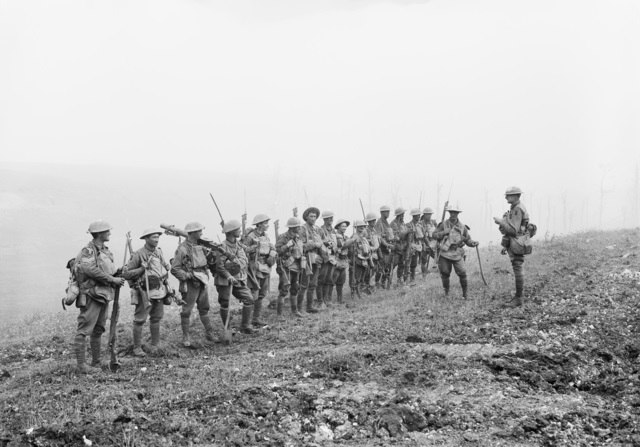John Bernard Croak VC was a soldier in the Canadian Expeditionary Force during the First World War and posthumous recipient of the Victoria Cross, the highest and most prestigious award for gallantry "in the face of the enemy" that can be awarded to British and Commonwealth forces. He earned the award for events that occurred during the Battle of Amiens in August 1918. A park and elementary school was named in his memory at Glace Bay, Nova Scotia.
John Croak in uniform.
The Battle of Amiens, also known as the Third Battle of Picardy, was the opening phase of the Allied offensive which began on 8 August 1918, later known as the Hundred Days Offensive, that ultimately led to the end of the First World War. Allied forces advanced over 11 kilometres (7 mi) on the first day, one of the greatest advances of the war, with Gen Henry Rawlinson's British Fourth Army and Gen Marie Eugène Debeney's French First Army playing the decisive role. The battle is also notable for its effects on both sides' morale and the large number of surrendering German forces. This led Erich Ludendorff to later describe the first day of the battle as "the black day of the German Army". Amiens was one of the first major battles involving armoured warfare.
8 August 1918 by Will Longstaff, showing German prisoners of war being led towards Amiens
Men of the Royal Garrison Artillery loading a 9.2-inch howitzer near Bayencourt just before the battle
British Mark V tank (B56, 9003) of the 2 Battalion, Tank Corps traversing a ditch at the side of a road at Lamotte-en-Santerre, 8 August 1918.
An Australian Lieutenant addressing his platoon before the advance onto Harbonnières which is obscured by smoke from heavy shellfire.





